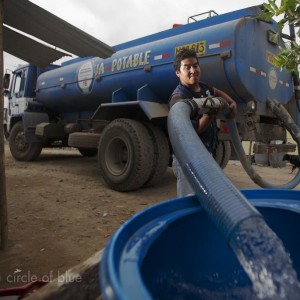The Stream, July 8: China To Allow Coal Conversion Plants Only Where Water Is Sufficient
The Global Rundown |
China said it will not permit coal-to-gas conversion plants in areas with insufficient water supplies. A cholera outbreak continues to claim lives in South Sudan, and malnutrition threatens children in Nepal. Zambia plans to cut power supplies to mines next week. A federal appeals court sided with the U.S. Environmental Protection Agency to protect Chesapeake Bay, and researchers in Singapore are building robotic swans to test water quality.
“Congress made a judgment in the Clean Water Act that the states and the EPA could, working together, best allocate the benefits and burdens of lowering pollution.”–Ruling of a federal appeals court in the United States that defended the federal Environmental Protection Agency’s program to clean up Chesapeake Bay. A lawsuit had argued that the program violated state rights. (The Washington Post)
By The Numbers |
30 percent Power cuts for mines in Zambia that the country plans to put in place as early as next week. Low water levels at hydropower dams have caused power shortages. Reuters
32 people Number who died from a cholera outbreak in South Sudan. More than 700 cases of the disease, which is transmitted through contaminated water, have been reported in the last five weeks. International Business Times
Science, Studies, And Reports |
China will only allow coal-to-gas projects in areas where water supplies are sufficient, according to new draft guidelines for the sector released by the National Energy Administration. The announcement comes amid concerns about the environmental consequences of coal conversion plants. Reuters
Researchers are designing robotic swans to test water quality in Singapore’s reservoirs. The robots would independently test for water quality parameters like pH, turbidity, and phosphorus, allowing scientists to get results much faster than manual sampling methods. Quartz
On The Radar |
The risk of malnutrition is high for children in Nepal following a major earthquake that struck the country in April, according to United Nations officials. Mothers and children are struggling to secure adequate supplies of food and water. Reuters
A news correspondent for Circle of Blue based out of Hawaii. She writes The Stream, Circle of Blue’s daily digest of international water news trends. Her interests include food security, ecology and the Great Lakes.
Contact Codi Kozacek






Leave a Reply
Want to join the discussion?Feel free to contribute!